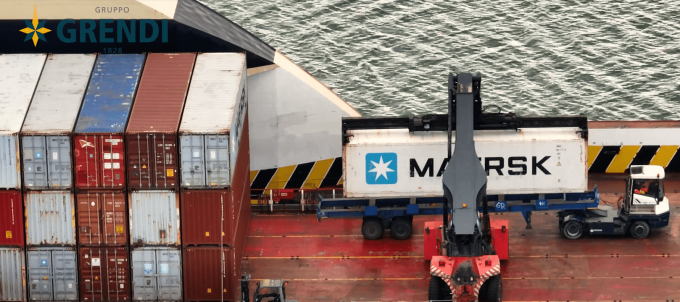DSV chief reticent on Schenker: the focus on growing market share
DSV focused on gains in market share, organic growth and making investors confident in its ...

Maersk’s ambition to become “the integrator of container logistics”, combining shipping and port terminals with logistics services, “looks flawed”, according to investment bank Bernstein.
The Danish giant has spent more than $8bn in an M&A spree since 2020, pursuing its end-to-end logistics strategy.
“Not only do we doubt competitive advantage from integration, but also we worry that this move sours commercial relationships with forwarders, who typically represent 50% of container shipping volumes,” said Bernstein in its latest research study on Maersk.
“We are below the group’s targets in Logistics & Services of 10% organic growth and a 6% ebit margin.”
During Maersk’s annual results presentation for 2023 last month, CEO Vincent Clerc said the group’s strategy was very clear: “We need to diversify our revenue and earnings streams towards the more stable and less volatile part of the supply chain, which is pretty much anything outside ocean 2PL.”
To support his case, he highlighted the forwarding segment’s “resilience in its earnings on the other side of Covid” and pointed to CMA CGM, which “has been able to house both a 2PL and 3PL offering under the same roof, successfully”.
However, Alex Irving, Bernstein’s equity research analyst and director, European transport, is not convinced.
“It’s self-evident that having a forwarder/logistics service business in the same group reduces volatility of group earnings. However, I do not see how that benefits investors,” he told The Loadstar. “Investors can achieve the same effect by investing in both a shipping line and a freight forwarder, if reduced earnings volatility is all there is.
“Where there are synergies between the businesses, so the whole can earn more together than it could separately, only then is it value-adding. I do think this is the case with terminals – and, as you know, Maersk is not the only liner to have terminal investments.
“I do not think this is the case for logistics and services, and I rather worry about the commercial risk to NVO volumes in Maersk Ocean.”
Mr Clerc also alluded to the sale of DB Schenker, underlining that this was something that Maersk had to consider given the size of any deal. But for Bernstein, acquiring the German logistics and forwarding group would be “a step too far”.
In its latest research, Bernstein also projects a poor outlook for Maersk’s core business of container shipping.
“It is facing huge oversupply; we see the fleet expanding by 10% in 2024 and 5% in 2025, to be be more than 40% ahead of 2019 levels, against 10%-15% demand growth in the same period, compressing earnings,.” it said.
“While Maersk has avoided rampant fleet capex in favour of logistics service M&A, we see too-high commercial risks in its alternative, integrated logistics strategy, and expect the group to struggle to hit growth and margin targets here.”
It added that expected Maersk to be loss-making this year, as oversupply ramps up, explaining: “Consensus sees earnings rising in 2025; we disagree, expecting oversupply to reach its zenith and expect a loss of $2bn-$3bn.”
Comment on this article